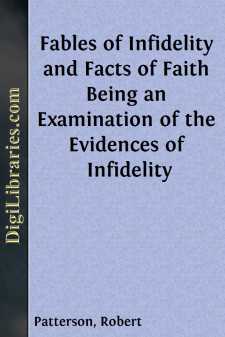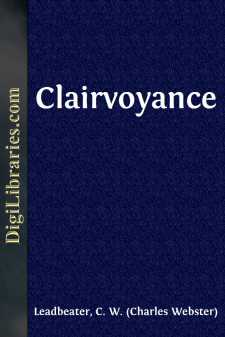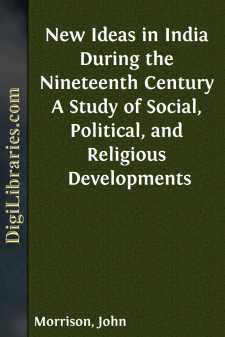Religion
- Agnosticism 2
- Antiquities & Archaeology 21
- Atheism 12
- Biblical Criticism & Interpretation 15
- Biblical Meditations 3
- Biblical Reference 1
- Biblical Studies 11
- Buddhism 8
- Christian Church 52
- Christian Education 5
- Christian Life 26
- Christianity 60
- Cults 2
- Devotional 6
- Eastern 2
- Education 4
- Eschatology 1
- Ethics 3
- General 60
- Gnosticism 1
- Hinduism 15
- History 28
- Holidays 10
- Inspirational 1
- Islam 8
- Judaism 3
- Leadership 1
- Meditations 3
- Monasticism 1
- Mysticism 11
- Philosophy 4
- Prayer 26
- Prayerbooks 5
- Religion & Science 12
- Sermons 54
- Spirituality 53
- Theism 2
- Theology 17
- Theosophy 15
Religion Books
Sort by:
THE GENIUS TO BE LOVED In the history of the last two thousand years there is but one Person who has been, and is supremely loved. Many have been loved by individuals, by groups of persons, or by communities; some have received the pliant idolatries of nations, such as heroes and national deliverers; but in every instance the sense of love thus excited has been intimately associated with some triumph...
more...
by:
J. C. McFeeters
I. THE LAND OF THE COVENANTS. All history is interesting and much of it is inspiring. Scotland furnishes a large measure of that quality of history, that awakens the soul, and appeals to the faculties by which life is transfigured with moral grandeur. History yields its best results when we use our best powers in pursuing its paths. Let the creative genius, a healthy imagination, be employed restoring...
more...
DON MIGUEL DE UNAMUNO I sat, several years ago, at the Welsh National Eisteddfod, under the vast tent in which the Bard of Wales was being crowned. After the small golden crown had been placed in unsteady equilibrium on the head of a clever-looking pressman, several Welsh bards came on the platform and recited little epigrams. A Welsh bard is, if young, a pressman, and if of maturer years, a divine. In...
more...
The settlement of Englishmen at Jamestown in 1607 was the outgrowth of a vision of transatlantic expansion which had been growing stronger steadily during the preceding generation. It was in the following of that vision that Queen Elizabeth granted to a group of men headed by Sir Walter Raleigh the authority to establish a colony upon the remote shores of the Atlantic ocean, and out of the plans of...
more...
I THE HOLY SYNOD AND TOLSTOI. When Count Tolstoi was excommunicated by the Holy Synod of Russia because "he preached the teachings which are contrary to the Christian faith," the world was divided in opinion and sympathy into two parts. The partisans of Tolstoi were in the majority in the Western world; those of the Holy Synod in Russia and the Orthodox East. Yet Holy Russia rejected Tolstoi...
more...
by:
Gilbert Murray
SATURNIA REGNA Many persons who are quite prepared to admit the importance to the world of Greek poetry, Greek art, and Greek philosophy, may still feel it rather a paradox to be told that Greek religion specially repays our study at the present day. Greek religion, associated with a romantic, trivial, and not very edifying mythology, has generally seemed one of the weakest spots in the armour of those...
more...
A NEW HOCHELAGAN BURYING-GROUND BY W.D. LIGHTHALL The above title is provisional as respects the term "Hochelagan." All those who are interested in the Indians of old Hochelaga, or in the Mohawks with whom they seem to have had a close and not yet fully ascertained race relationship, will be pleased to learn of the discovery of a prehistoric burying-ground which is probably one of their race,...
more...
by:
Robert Patterson
PREFACE. This is not so much a volume upon the Evidences of Christianity, as an examination of the Evidences of Infidelity. When the Infidel tells us that Christianity is false, and asks us to reject it, he is bound of course to provide us with something better and truer instead; under penalty of being considered a knave trying to swindle us out of our birthright, and laughed at as a fool, for...
more...
CHAPTER I. Clairvoyance means literally nothing more than "clear-seeing," and it is a word which has been sorely misused, and even degraded so far as to be employed to describe the trickery of a mountebank in a variety show. Even in its more restricted sense it covers a wide range of phenomena, differing so greatly in character that it is not easy to give a definition of the word which shall be...
more...
by:
John Morrison
CHAPTER I THE NEW ERA—SOME LEADING WITNESSES"The epoch ends, the world is still,The age has talked and worked its fill; The famous men of war have fought,The famous speculators thought. See on the cumbered plain,Clearing a stage,Scattering the past about,Comes the New Age.Bards make new poems;Thinkers, new schools;Statesmen, new systems;Critics, new rules." MATTHEW ARNOLD. India is a land of...
more...











